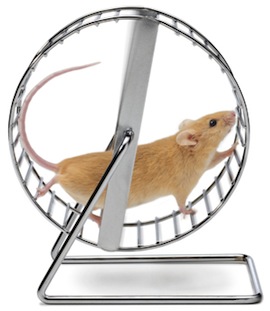
Hardcore exercise may make it harder to break a cocaine addiction, according to a study on coke-addicted mice. Researchers at the University of Illinois in Urbana-Champaign divided male mice into cages, half of which contained running wheels. After 30 days the mice were placed in chambers in the lab and introduced to cocaine—they liked it. The researchers then gave running wheels to the sedentary mice, while the mice who already had the wheels continued using them. After the drug supply was cut from all the mice, researchers discovered that the sedentary mice—those who started running after becoming addicts—had a relatively easy time breaking the habit. But those who exercised before trying cocaine lost their coke preference slowly—or couldn’t break the habit at all. “There is good news and maybe not-so-good news about our findings,” says study author Justin S. Rhodes, a professor of psychology at U. Illinois. “Really, what the study shows, is how profoundly exercise affects learning.” Researchers believe the animals that exercised before becoming addicted had an abundant supply of new brain cells primed for learning, which is why learned to crave cocaine more. “It’s a no-brainer, really,” says Dr. Rhodes. “Exercise is good for you in almost every way.” But by exercising, he adds “you do create a greater capacity to learn, and it’s up to each individual to use that capacity wisely.”
